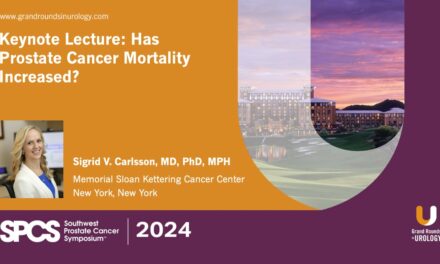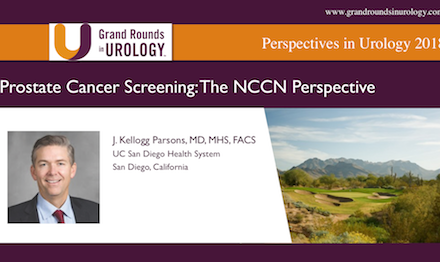Daniel Y. Song, MD, presented “Industry Perspective: BioProtect Balloon Implant™ System” at the 34th Annual International Prostate Cancer Update in Vail, Colorado, on February 12, 2024.
How to cite: Song, Daniel Y. “Industry Perspective: BioProtect Balloon Implant™ System.Industry Perspective: BioProtect Balloon Implant™ System.” February 12, 2024. Accessed Jan 2026. https://grandroundsinurology.com/industry-perspective-bioprotect-balloon-implant-system
Industry Perspective: BioProtect Balloon Implant™ System – Summary#
In this Industry Perspective, supported by BioProtect, Daniel Y. Song, MD, compares the BioProtect Balloon Implant™ System to rectal gel spacers currently on the market. Dr. Song begins by presenting the composition, dimensions, and safety features of the balloon.
Dr. Song then compares the balloon’s features and implantation process to those of the two most readily available rectal gel spacers on the market. He notes that, unlike the gel spacers, the balloon creates predictable, reproducible, symmetrical results.
Dr. Song presents a step-by-step illustration of the implantation process for the BioProtect Balloon Implant™ System. He presents a video demonstration of an implantation procedure via blunt dissection, which reduces the risk of rectal, capsular, and vascular infiltration. He adds that the balloon is simple to degrade, with 98% of the material degraded at the 6-month mark.
Dr. Song concludes by presenting the results of the BioProtect Multinational Pivotal Study. He compares the 3- and 6-month GI toxicities of patients treated with rectal gel spacers versus those treated with the BioProtect Balloon Implant™ System. He demonstrates that the balloon achieves robust reduction in radiation dose, while being well-tolerated by patients and easy for healthcare professionals to implant and adjust.
ABOUT THE AUTHOR
Dr. Daniel (Danny) Song is a Professor of Radiation Oncology, with joint appointments in Urology and Oncology. He serves as the Co-director of the Prostate Cancer Multidisciplinary Clinic at the Johns Hopkins Hospital and the Physician Advisor and Director of Faculty Affairs for the Department of Radiation Oncology and Molecular Radiation Sciences. His area of clinical expertise is in the management of genitourinary cancers, including cancers of the prostate, bladder and urinary tract, and testicular cancer.





